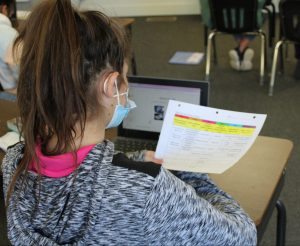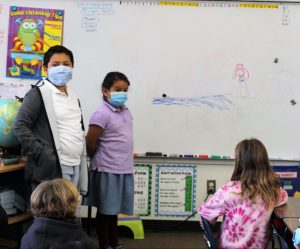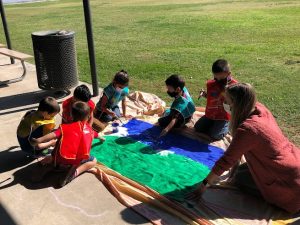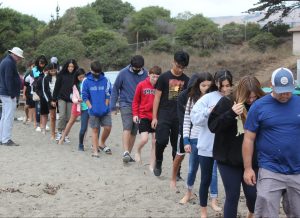Variety of Instructional Tools
The teachers at Sierra View Junior Academy are fully committed to academic excellence.
Standards Based Learning: A priority at Sierra View Junior Academy is in teaching students to self-monitor and take ownership of their own learning. Teachers stress individual accountability and responsibility through Standards Based Learning Objectives as set forth by the NAD Office of Education and the state of California.

6th Graders use rubrics and proficiency scales to self-monitor their projects.
Differentiated Instruction: Often referred to as an educational philosophy, differentiated instruction is viewed as a proactive approach to instruction. The model of differentiated instruction requires teachers to tailor their instruction and adjust the curriculum to students’ needs rather than expecting students to modify themselves to fit the curriculum. Sierra View Junior Academy teachers are committed to this approach because we believe that who we teach shapes how we teach, because who the students are shapes how they learn.
Differentiated Instruction involves providing students with different avenues to acquiring content, to processing, constructing, or making sense of ideas and to developing teaching materials so that all students within a classroom can learn effectively, regardless of differences in ability.

First and second graders role play Bible Characters to demonstrate an understanding of the Bible unit of study.
Hands-on Instruction: Teachers at Sierra View Junior Academy seek to provide of variety of instructional strategies and experiences both inside and outside the classroom. We believe that children learn best when involved and excited about what they are learning!

Kindergarten students cooperatively create an artistic representation of their science/Bible lesson.

7-10 students attempt to “walk in the footsteps” of the leader and then apply that lesson to our spiritual and social lives.
Evaluation
The school year is divided into four quarters (or grading periods): Two quarters make up one semester, and therefore, there are two semesters in the school year. Progress reports will be issued at the end of each quarter. Grades will be reported in one of two ways ways:
Tk – Grade 2:
I = Achieves objectives and performs sills independently.
P = Progressing toward achieving objectives an skills.
NT = Needs more time to develop.
Grades 3-10:
A = excels in understanding content and applying concepts.
B = Masters most content and skills
C = Demonstrates basic understanding of concepts and skills
D = Understanding of concepts and skills is limited and incomplete.
F = Shows an unacceptable level of understanding and/or effort.
Parents are always encouraged to discuss any questions or concerns that they may have about the grading with the student’s teacher and/or the school principal.
Academic Performance & Requirements
At SVJA, we take academics seriously. Progress reports are sent home weekly for grades 5-10. You may also choose to view your child’s grades online using RenWeb. Student grades effect eligibility requirements, holding student offices and participating in sports and extra-curricular activities as well as 8th grade graduation.

